Lurie Cancer Center Immune Assessment Symposium
Register now for October 2 & 3MultiOmics and More: the Latest in Immune Assessment
The Immune Assessment Symposium, hosted by the Lurie Cancer Center, will include two days of lectures, abstract presentations and poster displays October 2-3, 2025. The meeting is intended to promote cross-disciplinary exchanges to discuss current standards in immune monitoring and immunotherapy assessment for clinical and translational studies. Our goal is to establish a forum that brings together scientists studying immunotherapies and immune responses to review the current immune monitoring techniques and define a common thread for the usage of upcoming and future technologies to precisely evaluate immunologic responses in both basic and early-stage clinical research settings.
Event Details
Call for Abstracts
This meeting will feature poster displays and abstract presentations. If you are interested in displaying or presenting your work, please submit your information by July 21, 5:00 p.m.
Confirmed Faculty
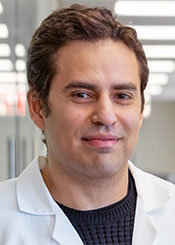 |
Diego Chowell, PhD Dr. Diego Chowell is a scientist at the Icahn School of Medicine at Mount Sinai, where he leads an interdisciplinary lab integrating computational biology, machine learning, and experimental research to advance cancer immunotherapy. His team harnesses large-scale molecular, genetic, and clinical datasets to develop machine learning models that predict patient responses to immune checkpoint inhibitors. A key focus is deciphering the molecular determinants of antigen recognition by T cells using deep learning and high-dimensional proteomic data. His lab also investigates the complex interplay between evolving tumor genomes and the host immune system, uncovering key drivers of immune evasion and therapeutic resistance. By leveraging vast datasets and cutting-edge computational approaches, his research aims to improve precision immunotherapy and guide more effective treatment strategies.
|
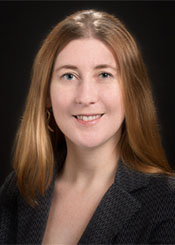 |
Cara Haymaker, PhD Dr. Cara L. Haymaker is an Associate Professor in the Department of Translational Molecular Pathology at the University of Texas MD Anderson Cancer Center. Her lab is focused on defining the tumor immune microenvironment including tumor-infiltrating lymphocytes (TIL) in malignant pleural mesothelioma and identifying actionable targets in this rare tumor. In addition, her lab is investigating ways to modulate intratumoral APCs to improve antigen presentation and costimulation to TIL, thus improving response to cellular and antibody-based immunotherapy strategies. Dr. Haymaker is also actively involved in immune profiling of clinical trials performed at UT MDACC as Director of both the Translational Molecular Pathology-Immunoprofiling Lab (TMP-IL) and the CCSG developmental Oncology Research and Immune-monitoring core (ORION).
|
 |
Jason Luke MD, PhD Jason Luke, M.D. is Associate Director of Clinical Research and Director of the Immunotherapy and Drug Development Center at UPMC Hillman Cancer Center as well as associate professor of medicine at the University of Pittsburgh. He is recognized as one of the leading international investigators in melanoma oncology as well as developmental immunotherapies for cancer, having designed and led multiple practice changing clinical trials. His translational research teams are funded by R01, UM1, U24, P50 and P30 mechanisms and he leads 5 investigator-initiated clinical trials. His research laboratory focuses on the discovery, validation and clinical translational of tumor-intrinsic mechanisms of immune exclusion to identify novel therapeutic targets in cancer immunotherapy using high-dimensional and multi-omic technologies. |
 |
Holden Maecker, PhDDr. Holden Maecker is a Professor of Microbiology and Immunology at Stanford University, where he leads the Human Immune Monitoring Center. A major theme of his research is to define metrics of immune competence in various settings, including cancer immunotherapy, organ transplantation, allergy, and chronic viral infection. His group uses CyTOF mass cytometry, often in combination with other technologies, to broadly survey immune features at the cellular level, then examine links between features or groups of features and clinical outcome. A long-term goal is to create an assay of global immune competence that could predict risk for various immune-related outcomes in both healthy individuals and in disease. |
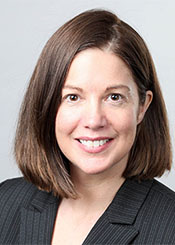 |
Chrystal Paulos, PhD Chrystal M. Paulos, PhD, is an associate professor of Surgery, Microbiology and Immunology at Emory University School of Medicine. She holds the David H. Lawson Professorship in Cancer Research and serves as director of translational research for cutaneous malignancies and as co-leader of the Cancer Immunology Research Program at Winship Cancer Institute of Emory University. The objective of Dr. Paulos' research is to develop novel T cell-based therapies for patients with melanoma. Her laboratory seeks to identify mechanisms underlying protective immunity in solid tumors, with an emphasis on adoptive T cell transfer (ACT) therapy. By combining basic and translational understanding of human T cells in clinical studies with mechanistic studies in relevant mouse models and in investigator initiated clinical trials in patients, her research team has contributed significant insight into the various roles of how to mount T cell memory responses to tumors. |
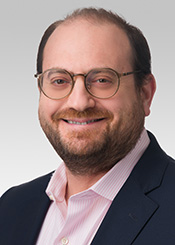 |
Seth Pollack, MD Dr. Seth Pollack, MD is an expert sarcoma specialist serving as the Director of the Sarcoma Program at the Lurie Cancer Center and the Steven T. Rosen Professor of Cancer Biology at the Feinberg School of Medicine at Northwestern University. With the help of canine sarcoma models, he is developing novel immunotherapies for patients with advanced sarcoma and leveraging unique features of sarcoma immunobiology to improve immunotherapy for all patients with cancer. His work has led to important breakthroughs in our understanding of the sarcoma immune microenvironment. He has led multiple, important, early-stage sarcoma immunotherapy trials. |
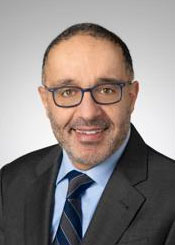 |
Hassane Zarour, MD Dr. Hassane Zarour co-leads the melanoma program at his Institution and has developed and used approaches to identify class II epitopes from melanoma tumor antigens to stimulate CD4 T cell responses. This has led to the development of clinical trials to test class I and II antigens combined with adjuvants for melanoma treatment. The lab is also engaged in studies to identify the contribution of costimulatory molecules that make up the immune synapse, and the role of the microbiome in supporting anti-tumor responses following checkpoint inhibitor treatment. |
Conference Fees
| Registration Fees |
||
| General | $75 | |
| Industry Representative | $250 | |
Conference Co-Chairs
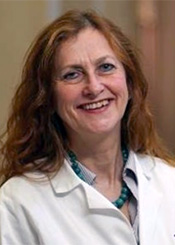
Caroline Le Poole, PhD
Professor of Dermatology and Microbiology-Immunology
Northwestern University
Feinberg School of Medicine
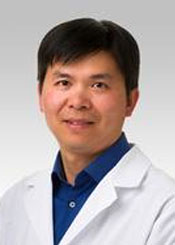
Bin Zhang, MD, PhD
Johanna Dobe Professor of Cancer Immunology
Professor of Medicine (Hematology and Oncology) and Microbiology-Immunology
Northwestern University
Feinberg School of Medicine
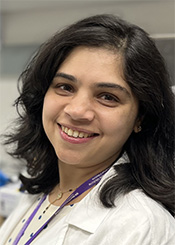
Surya Pandey, PhD
Research Assistant Professor of Medicine (Hematology and Oncology)
Northwestern University
Feinberg School of Medicine
Additional Information
For additional information about the event, please contact us at cancer@northwestern.edu

